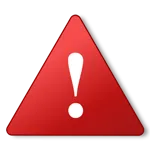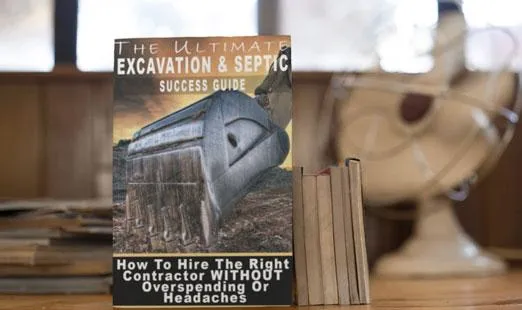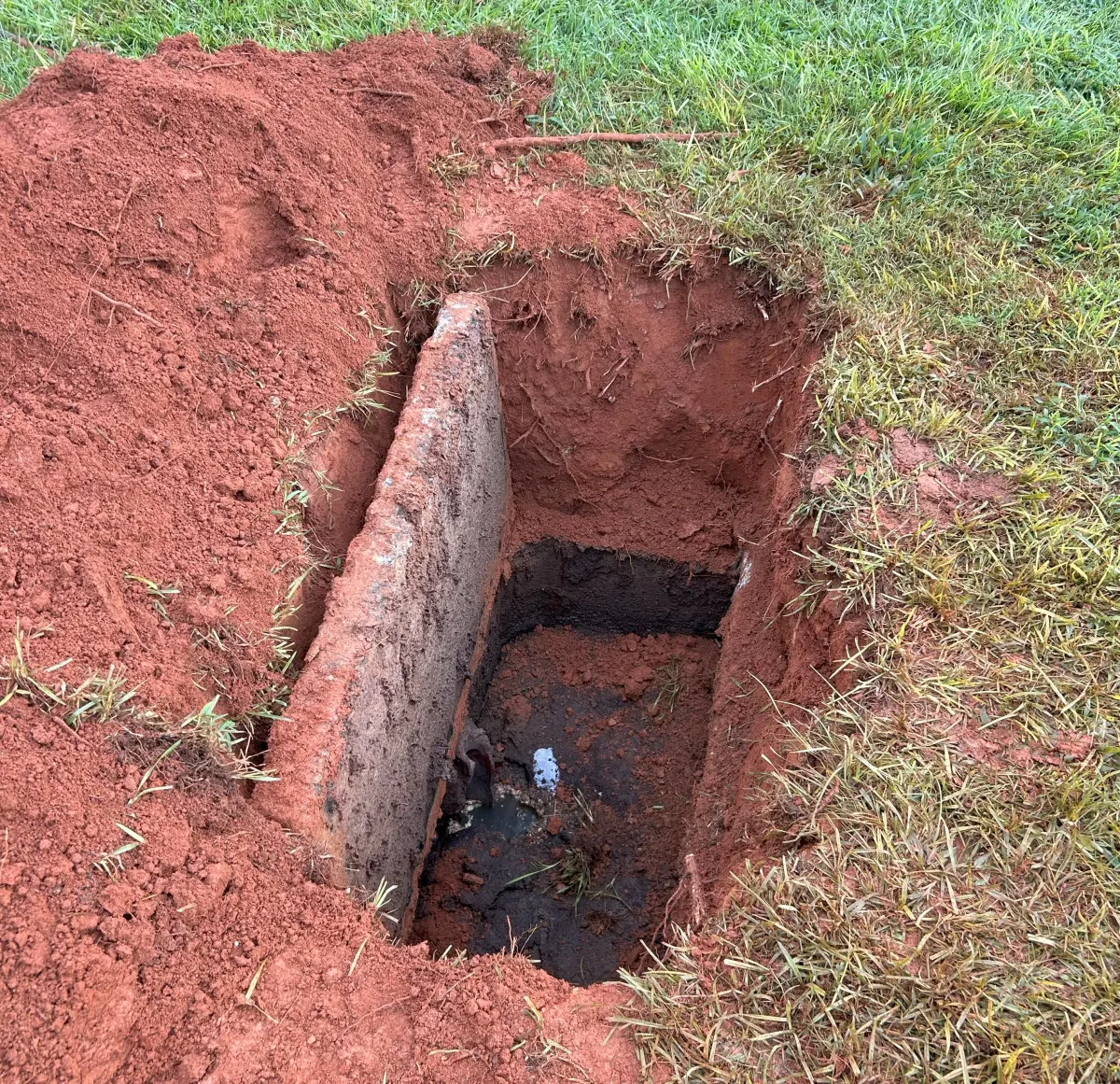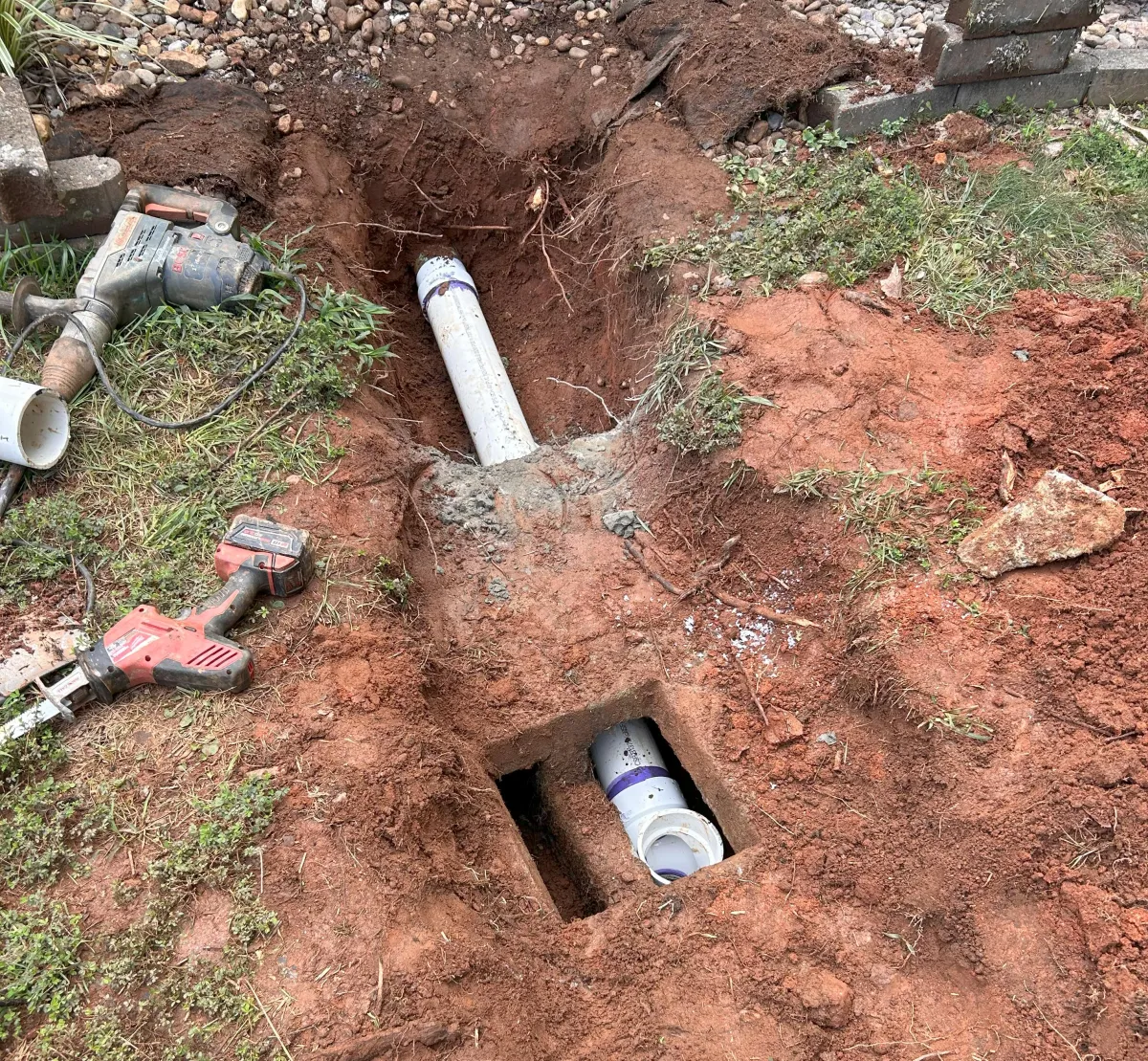Septic Inspections Near Anderson County, South Carolina
Hometown Septic Solutions LLC is Committed to superior quality and results!

AVOID COSTLY MISTAKES:
Do NOT hire an excavating contractor without first reading our free guide:
The ULTIMATE Excavation & Septic "Success Guide."

Why Septic Inspections Matter for Your Home
Your septic system is one of the hardest working parts of your property, and when it’s neglected, problems can add up fast. Regular septic inspections near Anderson County, South Carolina, give you peace of mind by catching issues early before they become expensive emergencies. At Hometown Septic Solutions, we help local homeowners understand the health of their systems and keep them working the way they should.
How Can We Help?


Protecting Your Property and Your Budget
Most septic failures don’t happen overnight. They build slowly through small leaks, clogged pipes, or unnoticed drain field issues. By the time these problems show obvious signs, you could be facing thousands in repair costs. That’s why our septic inspections are designed to identify even the smallest red flags early.
Our inspections in Anderson County include everything from tank checks and drain field evaluations to camera inspections that show what’s happening underground. This thorough approach helps you avoid unnecessary stress, protect your property’s value, and extend the life of your septic system.
What to Expect During a Septic Inspection near Anderson County, SC
1. Clear Communication From the Start
Many homeowners worry inspections will be disruptive or confusing. We arrive prepared, explain what we’ll be looking for, and guide you through each step so you always know what’s happening.
2. Locating and Opening the Tank
If your septic tank isn’t already accessible, we locate and carefully uncover it. Once open, we check the structural condition for cracks, leaks, or damage that could compromise the system.
3. Inspecting Baffles and Filters
Baffles and filters are essential for keeping solids out of the drain field. We examine them closely to ensure they’re working properly and protecting your system.
4. Measuring Sludge and Scum Levels
We measure the buildup inside your tank. If levels are too high, it’s a clear sign the tank needs pumping to prevent backups into your home.
5. Checking the Drain Field
The drain field is inspected for signs of oversaturation, poor absorption, or clogged lines. Using advanced camera inspections when needed, we can spot root intrusion, cracks, or blockages before they become costly issues.
6. Reviewing Findings With You
Once the inspection is complete, we sit down and go over the results in plain, simple language. We’ll provide honest recommendations, whether it’s basic maintenance, scheduling a pumping, or planning future repairs. Our goal is to give you a clear picture of your septic system’s health.
See Our Septic Services

✔️ Septic Services
✔️ Septic Inspections
✔️ Septic System Pumping
✔️ Septic Installations - Traditional Systems
✔️ Septic Repairs
✔️ Septic Tanks - Aerobic Systems
Quality Services Launched FAST!

✔️ Septic Tanks - Plastic/Poly
✔️ Septic Tanks - Concrete
✔️ Drain Field Replacement
✔️ Camera Inspections
✔️ Drainage Systems
What Are You Waiting For?
Septic Inspection near Anderson County, SC, and What We Provide
Full System Evaluations
A complete septic evaluation is the best way to ensure your system is working as it should. We don’t just check the tank, we assess the drain field, the connecting pipes, and even the surrounding soil conditions. This whole-system approach allows us to see the bigger picture and recommend solutions that protect your property long term.
Camera Inspections
Sometimes the real issues hide out of sight, deep inside the pipes. That’s why we use specialized camera equipment to get a clear view underground. With this technology, we can identify blockages, cracks, and root intrusion without guesswork. Camera inspections give homeowners confidence by showing the problem clearly and providing evidence of what needs attention.
Real Estate Septic Inspections
Buying or selling a home is one of the biggest investments you’ll make. A septic inspection during this process isn’t just smart, it's often required. We provide detailed real estate inspections near Anderson County, South Carolina, to give buyers and sellers peace of mind. Our reports make sure the system is in good working order before contracts are signed, helping avoid surprises at closing.
Drain Field Performance Checks
The drain field is often the first part of a septic system to show signs of stress. Poor absorption, standing water, or foul odors can mean the system isn’t doing its job. During inspections, we test how well the drain field is performing and check for warning signs of failure. Addressing issues here early can prevent costly replacement and protect your yard from damage.
Emergency Inspections
Septic systems don’t wait for a convenient time to fail. If you’re dealing with sewage backups, soggy patches in the yard, or strong odors, you need answers fast. We provide 24/7 emergency inspections across Anderson County, responding quickly to diagnose the issue and start a solution. Knowing you can reach a professional at any time gives you one less thing to worry about.
Preventive Maintenance Reports
An inspection isn’t just about what’s happening today, it's also about planning for tomorrow. After every inspection, we provide a clear, easy-to-read report with recommended next steps. This might include scheduling your next pumping, making small repairs, or simply monitoring certain areas. Having this information helps you budget wisely and avoid being caught off guard by unexpected failures.
At Hometown Septic Solutions, our septic inspection services are designed to give you more than just answers, they give you confidence. Whether it’s a routine check, a detailed camera inspection, or an emergency visit, we provide the information and solutions homeowners in Anderson County, South Carolina, need to keep their systems safe and reliable. By combining technology, experience, and clear communication, we help you protect your home, your property, and your peace of mind. When you’re ready for dependable septic inspections that put your needs first, contact us today to schedule your service.
Hours: 7am - 6pm Mon - Sat
Available for 24/7 Emergency Services
Address: 17711 Highway 101 S, Gray Court, South Carolina, 29645
All rights reserved | Client Support Area

